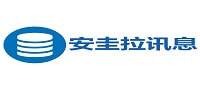Managerial titles significantly influence career progression and professional development. Holding a managerial title often The Impact of opens doors to higher responsibilities and better compensation. Employees with leadership titles gain recognition for their skills in managing teams and projects. This recognition can lead to promotions greece phone number list and opportunities in other departments or companies. Furthermore, clear titles help individuals build their professional brand, making networking and job searches more effective. Organizations benefit by retaining talent and motivating employees to develop leadership skills. Therefore, choosing appropriate managerial titles plays a strategic role in both individual and organizational success.
Team Lead Titles The Impact of and Their Influence on Team Dynamics
Team lead titles shape how team members perceive leadership and collaboration. A well-chosen title can inspire respect, trust, and motivation among team members. For instance, a “Team Lead” title suggests authority and responsibility, encouraging accountability. Conversely, titles like “Team Coach” or “Mentor” emphasize support and development, fostering a collaborative atmosphere. The title sets expectations for communication style, decision-making, and conflict resolution. Leaders who understand the impact of their title can adapt their approach to better meet team needs. This adaptability enhances team cohesion and overall productivity.
Differentiating Between Manager and Team Lead Responsibilities
Managers and team leads The Impact of have distinct but complementary roles within organizations. Managers focus on strategic planning, resource allocation, and long-term goals. They handle budgeting, performance reviews, and cross-department coordination. Team leads concentrate on day-to-day operations, guiding team members, and ensuring tasks are completed efficiently. They provide technical expertise and resolve immediate issues. While managers make high-level decisions, team leads translate those decisions into telemarketing supervisor: mastering customer relationship management actionable steps. Understanding these differences helps organizations assign titles that reflect actual responsibilities, avoiding confusion and overlap. Clear role definitions improve workflow and employee satisfaction.
Trends in Managerial and Team Lead Titles
Modern organizations increasingly adopt flexible and hybrid titles to reflect evolving work environments. Remote work and agile methodologies influence how leadership roles are defined. Titles like “Agile Coach,” “Scrum Master,” or “Product Owner” highlight specific leadership functions in project management. Additionally, companies emphasize inclusivity and empowerment by using titles that promote collaboration rather advertising library than hierarchy. Digital transformation also introduces roles such as “Digital Team Lead” or “Innovation Manager,” signaling expertise in technology-driven projects. Staying updated with these trends helps organizations remain competitive and attract top talent by offering relevant and appealing leadership roles.
